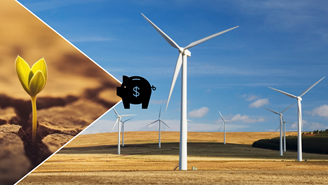On April 8th, Kinder Morgan (NYSE: KMI) and its Canadian subsidiary announced a suspension of work on its Trans Mountain Expansion pipeline (TME) until May 31 as resistance to the project comes to a head. The project, which would carry to market the glut of oil sands production in Alberta, is one of the few proposed pipeline megaprojects in Canada that remains underway. Despite this setback, the delay may not have a long-term negative impact on shareholder value. In our view, the suspension is not a capitulation but an ultimatum to push the Canadian government and the province of British Columbia (BC) to provide regulatory certainty for the project.
With CAD 1.1bn already spent, the suspension could be viewed as a move by KMI that protects shareholder value before even more capital is committed. Although the concerns about the pipeline’s potential environmental impact are by nature hard to mitigate, if Kinder Morgan is flexible in its deadline, the construction of Kinder Morgan’s TME pipeline is likely to proceed.
TME Faces Several Risks
In late 2016, as the Dakota Access Pipeline neared completion, we noted the fight over North America’s energy future had moved from the oil sands and frac pad to the pipeline right-of-way. The TME faces community, indigenous, and provincial resistance on two grounds: the risk of oil spills in BC’s Howe Sound and the additional carbon emissions it may enable. Safely navigating oil tankers away from KMI’s terminal is an impressive, but breathtakingly complex feat. Meanwhile, many view the project as conflicting with Canada’s carbon commitments under the Paris Accord.
Despite opposition from the BC government, which has exhausted many of its avenues for blocking the project, execution risks for the TME remain lower compared to similar projects. Both the federal government and the province of Alberta have offered financial and legislative support for the pipeline. Although completion of the TME has been delayed by a year and further delays will likely follow, other projects approaching the scale of the TME in North America have tended to face even more obstacles. For instance, the TME uses an existing pipeline route and lacks the complications of international approvals unlike the Keystone XL expansion or the now abandoned Northern Gateway and Energy East plans.
The project also appears to face lower reputational risks compared to other pipeline projects, at least for now. Based on our analysis of online search trends, social media, and Sustainalytics’ incident coverage, negative attention to the TME has more than doubled since its last peak in November 2016, when an important approval was granted. These negative sentiments are likely to deepen. However, this proxy for opposition has not yet eclipsed the peak levels seen by Sustainalytics for other controversial pipeline proposals like Northern Gateway, Keystone XL, or the Dakota Access pipeline.
Outlook for Trans Mountain Expansion
In the past, Kinder Morgan has shown a willingness to cut its losses when market, political, and community factors change. In our view, an improved balance sheet has allowed the company to suspend projects before large amounts of capex were spent unproductively. This is reflected in KMI’s decision making around its proposed Northeast Energy Direct and Palmetto pipelines.
Further surprises may be in store as the debate over this pipeline continues. Legal challenges from seven First Nations groups are still pending, and unlikely to be resolved by the May 31 deadline. If KMI does not consider an extension, or views these legal risks as too extreme, it may walk away from the project. Resistance and physical protests will also likely grow, while progress on the competing Keystone XL pipeline could siphon off political and business support. But with a balance sheet that provides breathing room for the company to absorb setbacks and think long-term, and the relative independence with which it pursues new projects, management should be able to navigate setbacks well, even if they prove to be worse than anticipated.
Kinder Morgan’s large and diversified asset base also allows it to better absorb losses incurred from a single project. The company has spent approximately CAN 1.1bn of the CAN 7.4bn total cost for the TME, roughly a third of the company’s average yearly growth capex. Each month of delay is expected to cost the company CAN 75m in lost earnings and a year of delay would represent a loss of about 9% of KMI’s EBIDTA. While these numbers are significant, the abandoning of the TME would not throw the company into crisis.
The nature of this asset base also provides some insulation from carbon stranded asset risk. Despite the attention on Kinder Morgan’s plans for bitumen pipelines like the TME, over half of its earnings are derived from natural gas. When taking the company’s entire asset base into account, including a unique CO2 supply business, the company will remain less exposed than some of its peers.
Action Points for Kinder Morgan Shareholders
Though reasons for opposition to the pipeline are largely intractable, investors can encourage Kinder Morgan to take steps to address spill and carbon concerns.
- Insist the company report on progress and setbacks as it seeks to meet the 194 conditions laid out by the National Energy Board and BC government as requirements for the project to move forward. According to KMI’s Q4 2017 earnings statement, completion of some requirements is still pending.
- Encourage progress on ESG disclosure, particularly around climate change. The pipeline industry’s ESG disclosure has lagged behind that of other industries. KMI must credibly articulate how the TME does not undermine Canada’s commitments to address climate change, and how investors will not be exposed to excessive carbon risk via the project. Kinder Morgan has already collaborated with the Environmental Defense Fund on methane issues and published a formal climate change statement. However, by using its dominant position to help spearhead industry-specific disclosure standards like we have seen in the Chemical Footprint Project and utilities industries, the company could help depolarize and advance the debate around pipelines and climate change beyond its current stalemate.
Do you have additional questions about the Trans Mountain Expansion, our research on pipeline operators, or our carbon products suite and carbon risk rating? Please feel free to Get in Touch.




